 Verizon Wireless customers and public safety personnel are upset that the cell phone company was caught unprepared after a rural roaming agreement with AT&T expired at the end of June, leaving police officers without communications and others with no way to reach 911.
Verizon Wireless customers and public safety personnel are upset that the cell phone company was caught unprepared after a rural roaming agreement with AT&T expired at the end of June, leaving police officers without communications and others with no way to reach 911.
AT&T no longer permits Verizon Wireless customers to roam on its acquired former Alltel network, which has dramatically reduced service in Geraldine, Absarokee, Ft. Benton, Browning, Harlem, Evaro, Cascade, Stanford, Lincoln, Ennis, Virginia City, and Great Falls.
Lincoln resident Gayle Steinch is living with the result of that business decision. She has a single bar of service on her Verizon Wireless cellphone at her house. It is her only phone — she dropped landline service in 2007.
“And I live a half a block off the main street,” she told the Great Falls Tribune.

Verizon’s road to no bars in rural Montana.
Capt. Gary Becker of the Montana Highway Patrol told The Montana Standard troopers in the area haven’t been able to communicate on their cell phones or their computers installed in their cruisers since the roaming agreement expired. Becker said police have to travel at least 30 miles to get any usable reception from Verizon.
Jessica Constantine, manager of the AT&T Elite Wireless store in Butte, said AT&T “had a roaming agreement with Verizon and we allowed them to use our towers for three years. The contract is over.”
And with it, Verizon Wireless network reception.
The agreement was part of a deal between AT&T and Verizon over Verizon’s 2010 purchase of Alltel. Federal regulators required Verizon to divest itself of certain Alltel territories for competitive reasons, transferring those customers to AT&T. As a result, territories that used to be well-served by Alltel’s CDMA network are now being converted by AT&T to GSM and data service, exposing Verizon’s sparse home cellular coverage in several parts of the state.
“They had years to prepare for AT&T switching off Alltel’s old CDMA service Verizon was dependent on, and Verizon did little to nothing,” said Jim Brown. “The Verizon person I spoke with told me it did not make sense to build a network out here because the only thing it would serve are crows. But they promised they would at least try to equal the coverage Alltel used to give us. That never happened and still isn’t.”
Verizon denied there was a major service loss in rural Montana. Bob Kelley, corporate spokesperson for Verizon, said that the change in service was planned and its impact would be limited to “less than optimal” service. He confirmed there were no unexpected outages.
 After negative media coverage reported Verizon’s inability to provide quality cell service in rural Montana, the company agreed to temporarily deploy portable cell towers to improve coverage.
After negative media coverage reported Verizon’s inability to provide quality cell service in rural Montana, the company agreed to temporarily deploy portable cell towers to improve coverage.
The “COWs”— cellphone towers on wheels — are stationed in Lincoln, Virginia City, Lima, Broadview, between Absarokee-Fishtail, as well as in Jackson, mostly meeting the needs of law enforcement monitoring the Rainbow Family Gathering last week. Verizon is also deploying repeaters that can re-broadcast signals and enhance range, as well as add coverage to existing permanent facilities. The company is planning on adding permanent towers this week in Marion and Tarkio. Additional permanent towers are also planned for Lincoln and Columbus by the end of August.
That cannot come soon enough for some customers.
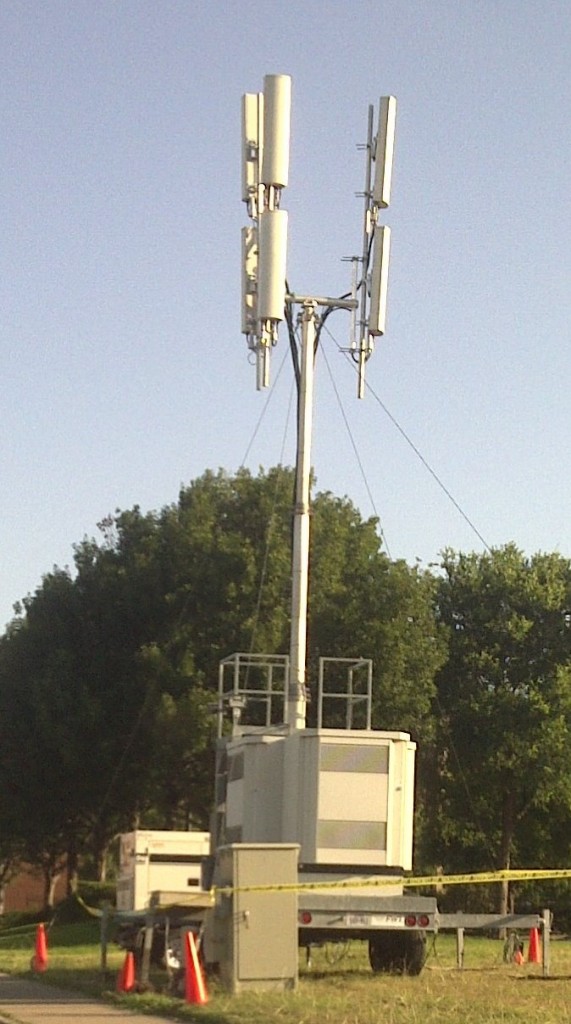
Cell tower on wheels
“Verizon brought up this 40-foot [temporary] antenna, but you really can only get service on it on Main Street,” said Steinch, the manager of The Bootlegger, a Lincoln bar and restaurant. “We had a guy in here this morning who has a towing company who missed out on an $1,800 job because his cellphone didn’t get the call.”
Service has deteriorated so badly in rural Montana, some AT&T stores had lines of soon-to-be-ex-Verizon customers snaking out the door, and at least one reported it was completely sold out of cell phones and wireless broadband devices.
“Dillon sold out of cell phones yesterday,” said Constantine, “because everybody in Lima who was using Verizon just flooded the Dillon store.”
Verizon subscriber John Ulias found his cellphone useless at his cabin in the Little Belt, as did many of his neighbors in that area.
Although Verizon told Ulias and the Tribune subscribers should still be getting service in the Little Belts area from a Verizon antenna in Stanford, Ulias said that isn’t the case.
“I gave the Verizon representative the cell numbers of two of my Little Belt neighbors after he told me we should be getting service up there,” Ulias told the newspaper. “The guy called me back and said his calls went straight to their voicemail.”
Montana residents affected by the disruption of Verizon Wireless service seeking to file a complaint should contact the Office of Consumer Protection at the Montana Department of Justice by emailing: [email protected], faxing 406-444-9680 or calling 800-481-6896 or 406-444-4500.
For customers planning to switch carriers because of reception issues in Montana, Verizon is waiving early termination fees. For those customers the company can convince to stay, discounted service will be available along with discounts on a Verizon Network Extender, a portable in-home mini-cell tower that interfaces with a home broadband connection. To pursue either option, prepaid consumers should call Verizon Customer Service at 1-888-294-6804; all others should call 1-800-922-0204.
In New York and New Jersey, Verizon is attempting to convince some rural residents to abandon their landline service in favor of Voice Link, which relies entirely on Verizon Wireless reception.
“I have one word for my friends back east: don’t,” said Brown.


 Subscribe
Subscribe An upstart telecom company has thrown the French mobile market into competitive chaos offering customers unlimited voice, messaging, and certain data services for around $26 a month. Now the company is expanding its footprint by offering free femtocells to customers that can be shared by other customers, according to
An upstart telecom company has thrown the French mobile market into competitive chaos offering customers unlimited voice, messaging, and certain data services for around $26 a month. Now the company is expanding its footprint by offering free femtocells to customers that can be shared by other customers, according to 

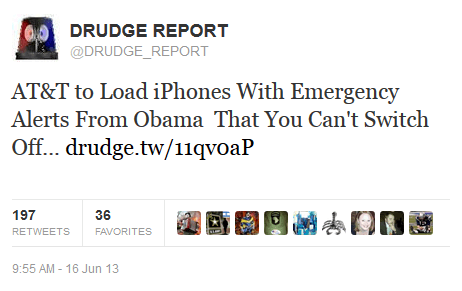 A law establishing a voluntary, national emergency alert system to give localized text warning messages to cell phone users about severe weather, terrorist attacks, natural disasters and missing children has generated conspiracy theories and complaints from some on the political right who suspect the system is designed to help President Obama promote his political agenda.
A law establishing a voluntary, national emergency alert system to give localized text warning messages to cell phone users about severe weather, terrorist attacks, natural disasters and missing children has generated conspiracy theories and complaints from some on the political right who suspect the system is designed to help President Obama promote his political agenda.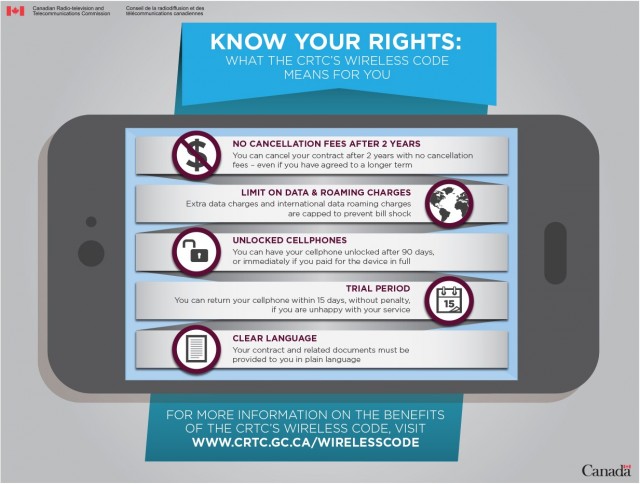 Canadian telecom regulators have announced new rules that will limit “gotcha” fees for mobile customers caught exceeding their data allowance, push for an end to the ubiquitous three-year service contract, and force carriers to unlock cell phones after 90 days.
Canadian telecom regulators have announced new rules that will limit “gotcha” fees for mobile customers caught exceeding their data allowance, push for an end to the ubiquitous three-year service contract, and force carriers to unlock cell phones after 90 days.

 “This requirement does limit consumer choice in the marketplace, and could make a customer’s up-front purchase price of a smartphone more expensive than current offerings,” said Bernard Lord, head of the Canadian Wireless Telecommunications Association (CWTA).
“This requirement does limit consumer choice in the marketplace, and could make a customer’s up-front purchase price of a smartphone more expensive than current offerings,” said Bernard Lord, head of the Canadian Wireless Telecommunications Association (CWTA).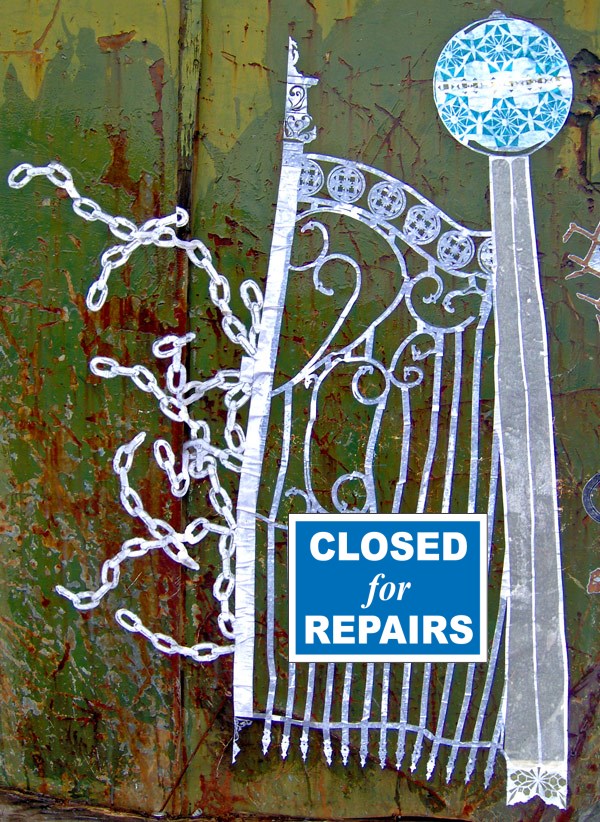 “I will be dead in the ground before Verizon gets around to restoring my phone line, and I have been their customer for 72 years,” says Irene, 95, one irate now-ex Verizon customer in New Jersey.
“I will be dead in the ground before Verizon gets around to restoring my phone line, and I have been their customer for 72 years,” says Irene, 95, one irate now-ex Verizon customer in New Jersey.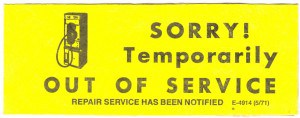 Irene’s great-grandchildren visit with cell phones in hand and cannot understand why Irene still bothers with her home phone, and the family purchased her a cell phone for Christmas to use in the interim but Irene has thrown it in a drawer.
Irene’s great-grandchildren visit with cell phones in hand and cannot understand why Irene still bothers with her home phone, and the family purchased her a cell phone for Christmas to use in the interim but Irene has thrown it in a drawer.